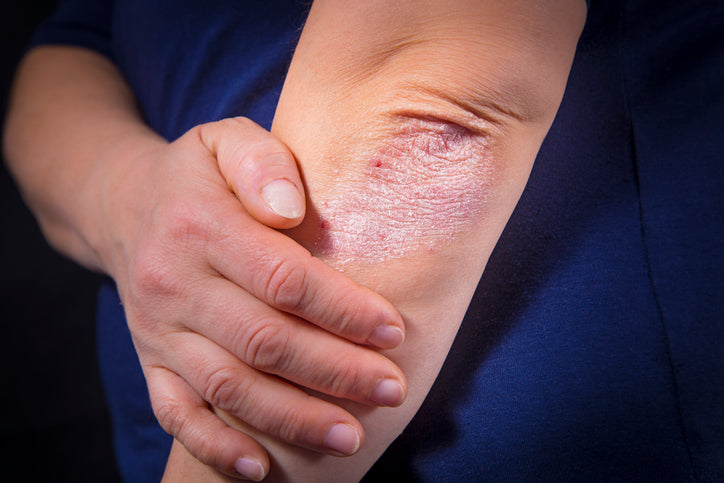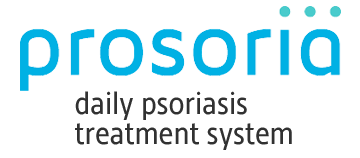
If you have psoriasis, you could be vulnerable to a variety of other health conditions — including arthritis, heart disease, psoriatic disease, and other medical issues. According to the National Psoriasis Foundation (NPF), up to 30% of people with psoriasis also develop psoriatic arthritis. But that’s not the only other condition that’s likely to affect people with psoriasis — if you have psoriasis, you are at greater risk of developing a variety of comorbid conditions and/or disorders including diabetes, irritable bowel syndrome, depression, anxiety, hypertension, and cardiovascular issues.
Despite the risks associated with psoriasis, research continues to reveal that taking control of your health can help improve your condition. The more knowledge you have, the better you’ll understand your situation — making it easier to take action together with your health care providers to manage your own health.
Researchers have discovered a link between psoriasis and heart disease
According to the NPF, “People with severe psoriasis are 58 percent more likely to have a cardiac event and 43 percent more likely to have a stroke.” Due to this link and increased risk of cardiovascular disease, some people with psoriasis may have a greater likelihood to suffer from heart attacks at a younger age than the general population.
That increased propensity for heart attacks could be linked to inflammation; psoriasis itself has shown to increases inflammation throughout the body, and the blood vessels are no exception. Blood vessel inflammation can result in the development of atherosclerosis, which leads to the hardening of the arteries as plaque (a fatty substance) builds up in the artery walls. In turn, atherosclerosis can result in strokes, coronary artery disease, kidney problems, or peripheral artery disease.
In addition, psoriasis is also linked with an increased chance of developing high blood pressure, or hypertension. Controlling your blood pressure is especially important, as hypertension can lead to health conditions including eye disease, increased risk of cardiovascular disease, kidney disease, and erectile dysfunction. Plus, it can also increase a person’s risk for diabetes.
Studies show a strong link between high blood pressure and psoriasis, including a recent study in the UK, which found that people with psoriasis are “20 percent more likely to have uncontrolled blood pressure than people without psoriasis, and people with severe psoriasis were 48 percent more likely [to have it].”

So, if you have psoriasis, it may be helpful to monitor your blood pressure or visit a doctor to make sure your blood pressure is within healthy levels and not at cardiovascular risk. If your doctor finds that your blood pressure is higher than normal, they may prescribe you medication. In addition to medication, there are a lot of great ways you can help reduce your blood pressure on your own — including limiting your salt intake, eating more veggies, and avoiding too many processed foods. It can also be a good idea to check your own blood pressure between doctor’s appointments to make sure you’re on track.
Evidence also shows a link between psoriasis and diabetes.
A variety of studies show a real link between psoriasis and diabetes — and this link may be genetic. One recent study found that people with a certain genetic predisposition had a greater chance of developing psoriasis and were more likely to develop diabetes, regardless of other diabetes risk factors, like high blood pressure and a high BMI (body mass index). Like some of the other health conditions mentioned, the disease severity of a patient's psoriasis was also linked to a greater chance of developing diabetes.
According to the NPF, another population-based study “found that those with severe plaque psoriasis or severe psoriatic arthritis were 46 percent more likely to have type 2 diabetes... [However] mild psoriasis resulted in an 11 percent increase in diabetes.” Research compiled by the NPF also indicates that psoriasis is linked to metabolic syndrome, which is one of the biggest risk factors for diabetes. And, the risk of getting diabetes increases as we get older; according to the American Diabetes Association. Although children with psoriasis may be at risk of getting diabetes, adults who are 65 or older have the highest prevalence of diabetes of any age group.
Fortunately, research indicates that weight loss and dietary changes may be able to improve diabetes or even (in some cases) reverse diabetes. Plus, a 2014 study in the British Journal of Dermatology showed that overweight patients (or those struggling with obesity) with psoriasis who embarked on 20-week diet and exercise program experienced weight loss and saw a 48% reduction in their psoriasis disease severity.
People with psoriasis also have a greater chance of being diagnosed with an Inflammatory bowel disease.
According to the NPF, “a recent study of women with psoriasis showed that 10% of them developed some form of inflammatory bowel disease (IBD), such as Crohn’s disease or ulcerative colitis.” The research also indicated that people with psoriatic arthritis are at an even higher risk of developing IBS.
Plus, research published in the Journal of the American Academy of Dermatology suggests that psoriasis and Crohn’s disease share a common genetic factor — and, interestingly enough, the same immunosuppressive drug (infliximab) that is sometimes used to treat plaque psoriasis can also be used to treat Crohn's disease. However, some of the newer biologicals such as the IL-17 inhibitors may exacerbate or induce inflammatory bowel diseases such as Crohn’s disease or ulcerative colitis in certain individuals.
A significant number of people with psoriasis have been shown to suffer from fatty liver disease.
It should be noted in a study that a large portion of psoriasis patients (up to 50%) have also been found to suffer from nonalcoholic fatty liver disease (NAFLD). NAFLD can result in serious conditions like cirrhosis and heart disease — even for those who don’t drink. So, if you have psoriasis, you may want to have your doctor screen for this condition to help you stay healthy.
Psoriasis and depression are linked — but treating one may address the other.
Research indicates that people with psoriasis are at greater risk for both depression and anxiety — and psoriatic patients who suffer from psoriatic and/or rheumatoid arthritis are even more likely to have these conditions than those who suffer from psoriatic disease, or psoriasis, alone.
A study published in the Journal of Rheumatology found that “36.6 percent of participants with psoriatic arthritis had anxiety, while 22.2 percent had depression” — numbers that far exceed the national average for either disorder. In addition, psoriatic patients are more likely to use antidepressants than members of the general population. Certain inflammatory mediators associated with causing inflammation in psoriasis have been directly linked to symptoms of depression and anxiety.
However, if you have both psoriasis and depression, there’s still a lot of hope; studies show that people who receive effective treatment for their psoriasis report lower levels of depression. Plus, studies suggest that reducing inflammation itself may be able to reduce depression.
To fight both inflammation and depression, try reducing your stress levels, eating anti-inflammatory foods (may help reduce taking anti-inflammatory drugs and/or nonsteroidal anti-inflammatory drugs), exercising more, and incorporating yoga and breathing exercises into your daily routine. A daily dose of turmeric or curcumin has been shown to help improve the symptoms of depression and anxiety in patients who are receiving prescription treatment to help them manage their condition..
Understanding psoriasis comorbidities will help you take more control over your life.
Dealing with psoriasis can often be a challenge, but the more you know about psoriasis and psoriasis comorbidities, the more you can do to take control of your health. While having psoriasis means you might have a higher risk of developing other health issues, the good news is that most these other associated conditions can be controlled or even eliminated with lifestyle changes, diet, or medication.
If you’re not getting the results you would like, and you are looking for a new non-prescription way to treat your psoriasis, we invite you to try Prosoria Psoriasis Treatment System which has been clinically proven to not only relieve psoriasis symptoms, but also help prevent recurrences. Prosoria is here to support you on your journey to clearer skin today.
So, whether you only have psoriasis, or you have both psoriasis and other comorbid conditions, staying positive and taking steps to improve your health is essential to living a happier, healthier life. If you have questions about how Prosoria™ can help your psoriasis symptoms, sign up for our newsletter, follow us on social media, shoot us an email at support@prosoria.com, or visit prosoria.com and contact us for more information!

